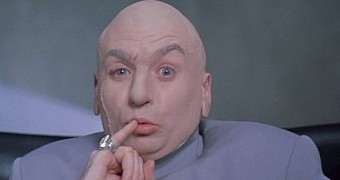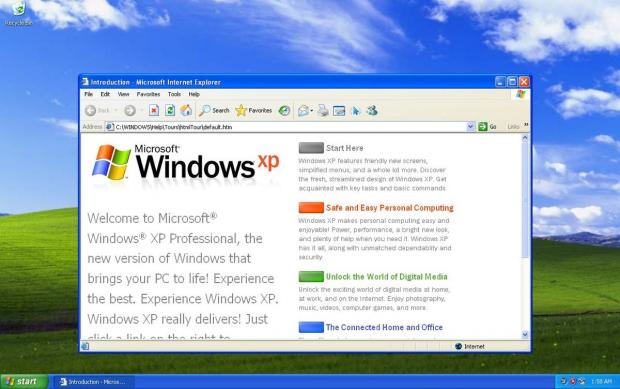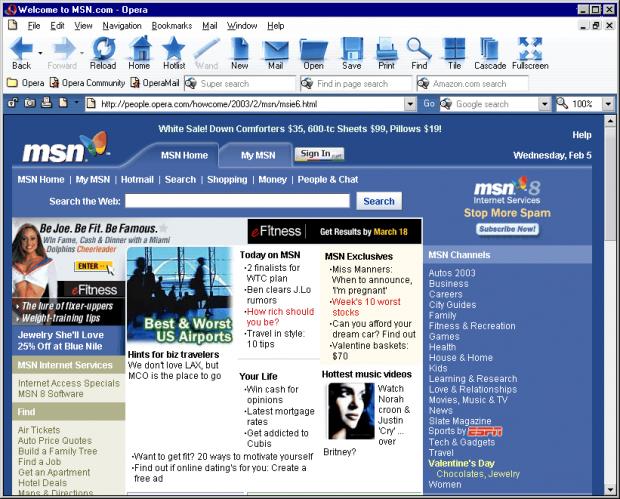If you think that Microsoft has become a super-aggressive company that does everything to push users to Windows 10, that’s not true. Pretty much because aggressive tactics that been part of its DNA for a long time.
Back in 2003, the software giant was involved in a browser scandal against Opera Software, the maker of Opera and which is still in the market these days with one of the most advanced (yet not as popular as Google Chrome or Firefox) browsers.
It all started in 2002 when Microsoft decided to block third-party browsers, including Opera, from connecting to MSN, which at that point was a rather top destination for Internet users. This was believed to be part of an attempt to increase the userbase of Internet Explorer, the default browser in Windows, but which many abandoned for other apps offering many more features.
Following the criticism, Microsoft removed the restriction, but warned from the very beginning that MSN could look faulty in other browsers because third-party solutions “don’t support the standards we support closely.” In other words, the software giant said that Internet Explorer was providing the best experience, but without dropping a single hint about any deliberate sabotage.
One year later, Opera Software publicly blasted Microsoft for sending its browser faulty instructions that made content on MSN look broken, again in an attempt to convince users to switch back to Internet Explorer.
"Opera 7 receives a style sheet which is very different from (that used by) the Microsoft and Netscape browsers," Opera Chief Technology Officer Hakon Lie said at that time. "Opera 7 is explicitly instructed to move content off the side of its container, thus creating the impression that there is something wrong with Opera 7."
While Microsoft initially tried to remain tight-lipped on these accusations, the outcry forced the company to admit that MSN looked broken in some browsers because “we have different style sheets and different code for various browsers.”
Eventually, MSN was rendered correctly in Opera 7 browser, but the saga didn’t stop here. Because MSN was still broken in older versions of Opera, the browser company decided to launch what it called Opera 7 Bork Edition. This “new” browser was nearly identical with the original Opera 7, with just one difference: MSN looked gibberish. Opera 7 Bork Edition converted the content on MSN into the language of Swedish Chef from the Muppet Show: Bork, Bork, Bork!
"Hergee berger snooger bork," says Mary Lambert, product line manager desktop, Opera Software. "This is a joke. However, we are trying to make an important point. The MSN site is sending Opera users what appear to be intentionally distorted pages. The Bork edition illustrates how browsers could also distort content, as the Bork edition does. The real point here is that the success of the Web depends on software and Web site developers behaving well and rising above corporate rivalry."
The dispute was eventually resolved silently when MSN started looking correctly in all browsers, as Microsoft gave up on offering different style sheets to third-party browsers.
Unfortunately for Microsoft, scandals like this one really dragged down both MSN and Internet Explorer, which despite being the number one browser for a long time, it only managed to survive because it was the default choice in Windows.
For what it’s worth, Google Chrome is currently the number one browser worldwide with more than 60% market share on the desktop, despite Microsoft offering a completely new browser in Windows 10 called Microsoft Edge.
Aggressive tactics like an extra step to change the default apps in Windows 10 and ads on the desktop have also been used to promote Microsoft Edge, but until now, this strategy hasn’t really succeeded, but rather caused more criticism against Microsoft.

 14 DAY TRIAL //
14 DAY TRIAL // 



